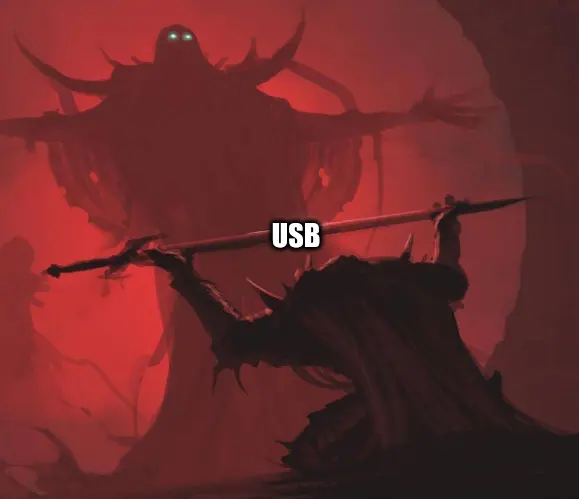this post was submitted on 12 Sep 2024
368 points (98.4% liked)
linuxmemes
20880 readers
5 users here now
I use Arch btw
Sister communities:
- LemmyMemes: Memes
- LemmyShitpost: Anything and everything goes.
- RISA: Star Trek memes and shitposts
Community rules
- Follow the site-wide rules and code of conduct
- Be civil
- Post Linux-related content
- No recent reposts
Please report posts and comments that break these rules!
founded 1 year ago
MODERATORS
you are viewing a single comment's thread
view the rest of the comments
view the rest of the comments

Can confirm, Ventoy is fantastic! I just keep one 128GB USB drive with a ton of ISOs on it and that does the trick!
What do you have on it? I've considered setting one up, but I'm not sure what I'd put on it yet, and I don't want to do the thing where I make something I never use.
I try to keep all of the distros I've tried out, with their current versions and previous versions (if it makes sense), such as:
I've stopped distro hopping as much as I used to, but I do keep a much smaller partition around for playing with another distro if I want to (such as the latest test version of Pop that includes the COSMIC epoch alpha release). I'd say that you definitely don't need a 128GB flash drive, but the last 16GB flash drive I was using pretty much died and when I went to get a new one, the difference between 16/32/64/128 was negligible enough that I just decided to get a 128 one and never deal with storage issues on it again. Plus, you can tell the Ventoy installer to leave some free space for a non-ISO partition to keep other stuff on it as well.
Given your vast experience and that your distro quest is over -- what did you settle on?
Sincerely, Win10+Kubuntu user
Nowadays I primarily just go with Arch, it works "fine enough" for my use cases (software dev and gaming) and the AUR truly does just about have everything that I've ever wanted to install.
That is not to say that it doesn't have its issues though, a while back ago I was using EndeavourOS and my PC completely locked up (seemed like a kernel panic) in the middle of pacman running a system upgrade and it borked the whole install. I haven't gotten around to migrating my home folder to its own partition (it is in its own btrfs subvol though), so I just went with installing Arch and choosing to keep the btrfs home subvolume so that the base system was replaced, yet my home folder was preserved. I'm sure that I could've fixed the issue in a chroot, but it was easier to just wipe everything outside of my home folder and just start fresh.
I am heavily interested in Atomic systems, the above issue being one of the bigger reasons, but I would continuously run into walls when trying to use non-flatpak software. Most of the Atomic distros have a way to effectively spin your own image, but at the moment I just don't have the time to learn how to do it. NixOS fell into a similar boat for me, Nixpkgs is quite large but I'd have things randomly break because they're expecting a FHS compliant layout (such as some of my dev tools) and while I'm sure I could eventually learn how to fix it, Nix's docs are... not the best, and I ran into time constraints again.
I'll eventually circle back to reviewing Atomic distros and spinning up my own custom image once things in my life settle down a bit, but there's just too much chaos for me to justify throwing another wrench into it when Arch for the most part does what I need it to do.
My desktop also used to have a Nvidia GPU in it, and is one of the reasons why I started using Arch in the first place - they were pretty much always the first to get the Nvidia driver updates. Thankfully I switched to AMD (a 6700 XT) about a year ago and that specifically hasn't been an issue (and allowed me to explore more distros without having to worry about how the Nvidia installation/update process was - its not really complicated on any of the distros, but its an additional step unless you use something like Pop that has the drivers preinstalled).
However I do also use Fedora on my old MacBook, I tend to only use it for lightweight browsing and occasionally SSH'ing into some systems and I've quite enjoyed Fedora so far.